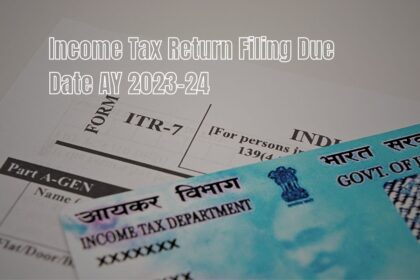Budgeting is an essential financial management tool that helps individuals and households take control of their finances, achieve their financial goals, and make informed decisions about their spending. Creating a budget allows you to track your income, expenses, and savings, enabling you to allocate funds efficiently and make better financial choices. In this step-by-step guide, we will explore creating a budget and provide valuable tips to help you manage your money effectively.
Introduction
In the fast-paced world, we live in today, it’s easy to lose track of our personal finance and overspend without realizing it. However, creating a budget allows you to gain clarity and take charge of your financial situation. A budget is a roadmap that outlines your income, expenses, and savings, helping you make conscious decisions about where your money goes. Let’s dive into the step-by-step process of creating a budget that works for you.
Understanding the Importance of Budgeting
Before we begin creating a budget, it’s crucial to understand why budgeting is essential. A budget provides a clear picture of your financial health, helps you save money, and ensures you are prepared for unexpected expenses. It lets you define financial goals and keep track of your performance. By having a budget, you gain control over your finances and reduce the stress associated with money management.
Assessing Your Financial Situation
To create an effective budget, you must start by assessing your current financial situation. Begin by analyzing your income and expenses. Make a list of all your sources of income, such as your salary, freelance work, or investments. Next, track your expenses by categorizing them into fixed expenses (e.g., rent, mortgage, insurance) and variable expenses (e.g., groceries, entertainment, dining out). This evaluation will provide a clear understanding of where your money is going.
In addition to analyzing your income and expenses, it’s crucial to identify your financial goals. Do you want to save for a vacation, pay off debt, or investing in the future? Knowing your goals will help you allocate funds appropriately and prioritize your spending.

Creating a Budget Plan
Once you have assessed your financial situation, it’s time to create a budget plan. Start by setting realistic goals that align with your financial aspirations. Your goals should be broken down into long-term and short-term goals. For example, a short-term goal might be to save a certain amount of money each month, while a long-term goal could be to pay off your student loans in five years.
With your goals in mind, allocate funds for different categories such as housing, transportation, groceries, entertainment, and savings. Consider your fixed expenses and prioritize them. Then, distribute the remaining funds among variable expenses, ensuring you don’t overspend in any category.
Tracking Your Expenses
There needs to be more than just creating a budget; you must also track your expenses to stay within your budgetary limits. There are various tools and apps available that can help you track your spending. These tools provide a comprehensive overview of your income and expenses, making it easier to identify areas where you may be overspending.
Additionally, keeping receipts and records of your purchases is crucial for tracking your expenses accurately. This practice allows you to compare your actual spending against your budget and make necessary adjustments.
Making Adjustments to Your Budget
As you start implementing your budget, you must review and analyze your spending regularly. This review will help you identify areas where you can improve or cut back on expenses. Analyze your spending patterns and determine if there are any unnecessary or excessive expenditures. By making small adjustments to your budget, you can optimize your spending habits and work towards your financial goals more effectively.
Dealing with Unexpected Expenses
Life is full of surprises, and unexpected expenses can often throw a wrench into your budgeting efforts. To prepare for such situations, building an emergency fund is crucial. Set aside a portion of your monthly income and gradually build a fund that can cover unforeseen expenses, such as medical bills or car repairs. This emergency fund will provide a safety net and prevent you from derailing your budget when unexpected costs arise.
Additionally, be open to adjusting your budget when necessary. Unexpected expenses may require you to temporarily reallocate funds from one category to another. Flexibility is key when it comes to budgeting.
Staying Motivated and Disciplined
Budgeting can sometimes feel challenging, but staying motivated and disciplined throughout the process is important. Take small steps as you go to keep you on track. For example, reward yourself when you achieve a savings milestone or successfully stick to your budget for a specific period. These celebrations will provide positive reinforcement and make the budgeting journey more enjoyable.
Seeking support and accountability can also boost your motivation. Share your budgeting goals with a trusted friend or family member who can hold you accountable and provide encouragement when needed. Working together towards financial success can make the process more engaging and rewarding.
Revisiting and Revising Your Budget
A budget is not a one-time exercise; it requires regular review and revision. Changes in life happen as do your financial goals. Make it a habit to revisit your budget periodically and assess whether it aligns with your current needs and aspirations. Make adjustments to your budget as needed by analyzing the impact of changes in your income, expenses or financial objectives. You can ensure your budget remains relevant and effective by staying proactive and adaptive.
Frequently Asked Questions (FAQs)
-
Why is creating a budget important?
Creating a budget is essential because it allows you to take control of your finances, track your income and expenses, and make informed financial decisions. It helps you prioritize your spending, save for goals, and avoid unnecessary debt, ultimately leading to better financial stability and peace of mind.
-
How do I start creating a budget from scratch?
To create a budget from scratch, begin by gathering all your financial information, including income sources, bills, and expenses. Then, categorize your expenses into essential (such as rent, utilities) and discretionary (like entertainment, dining out). Set financial goals, allocate money to each category, and track your expenses regularly to ensure you’re staying within your budget.
-
What are some common budgeting mistakes to avoid?
Some common budgeting mistakes to avoid include underestimating expenses, not accounting for irregular or unexpected expenses, not adjusting the budget as circumstances change, and neglecting to set aside money for savings and emergencies. It’s important to review and update your budget regularly to avoid these pitfalls.
-
How can I adhere to my budget and not overspend?
To stick to your budget and avoid overspending, consider using strategies such as tracking your expenses diligently, prioritizing your needs over wants, practicing mindful spending, using cash envelopes or budgeting apps, and finding accountability through a financial partner or support group. It’s also helpful to identify triggers or temptations that lead to overspending and develop strategies to overcome them.
-
Can I make adjustments to my budget as circumstances change?
Absolutely! It’s important to recognize that circumstances may change over time, and your budget should be flexible to accommodate those changes. Life events, income fluctuations, or new financial goals may require adjustments to your budget. Regularly review and reassess your budget to ensure it aligns with your current situation and goals.
Conclusion
Creating a budget is a valuable skill that empowers you to take control of your finances. Following this step-by-step guide, you can develop a budgeting strategy that suits your unique circumstances. Remember to regularly track your expenses, make adjustments when needed, and stay motivated. With a well-crafted budget, you’ll be on the path to achieving your financial goals and building a secure future.













